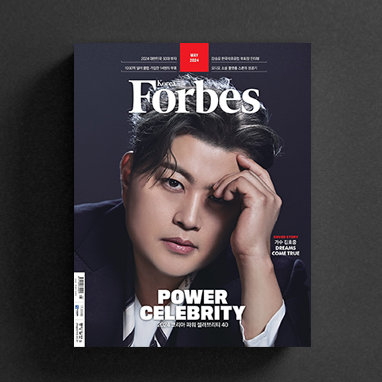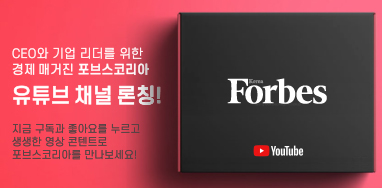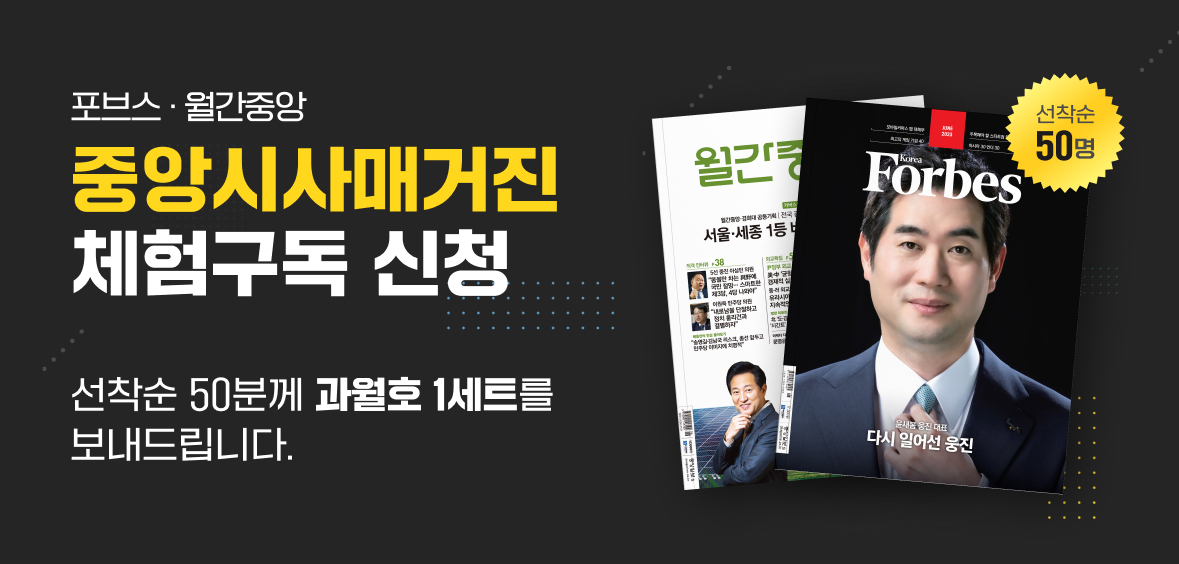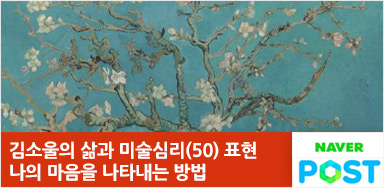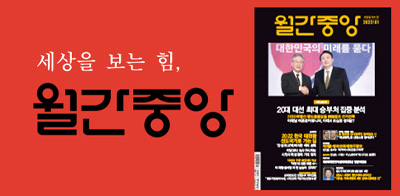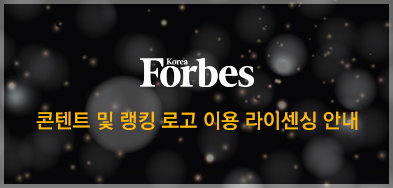We launched an exclusive global leadership series with global executive coach and InnovatorsBox Founder & CEO Monica H. Kang. Starting this month, we’ll first highlight innovative global leaders transforming their fields and dive deeper into how they became who they are. - Note from the Editor

▎Peter Sohn is an American filmmaker, animator, storyboard artist, and voice actor. He is best known for directing the Pixar animated films The Good Dinosaur (2015) and Elemental (2023), for the latter where he was nominated for the Academy Award. / Photo: PIXAR |
|
Walking into a room with Peter Sohn, 46, Pixar Elemental Director, felt like stepping into a world with abundant imagination and color. I almost felt like he was interviewing me. Turns out this is a typical reflection of Sohn who loves learning and genuinely wants to understand the people around him. Perhaps this is the secret to his success: he approaches the world with passion, sincerity, and curiosity.The world fell in love with Sohn in June 2023 when Elemental hit theaters. Pixar’s Elemental captures the story of four elements and has already received critical acclaim. Not only is the movie moving, but its unique lens of navigating diverse cultures resonated deeply with many fans, especially immigrants and Korean Americans. Sohn often describes Elemental as “the movie I made to honor my parents.” The story around Amber, the main fire character, and her father reflects Sohn’s journey with his father, who owned a grocery store in New York. Additionally, the story of water and fire was inspired by Sohn’s own marriage.The world may have only learned about Sohn recently, but he is a veteran in animation, with 40 years in the field and 24 years at Pixar. Did you know Russell, the eight-year-old adventurer in 2009's Up, was based on Sohn as the first Asian lead character at Pixar? Or that Scott "Squishy" Squibbles, the open-minded and courageous character in Monsters University, was not only voiced by him but also modeled after his personality? In Ratatouille, Sohn voiced Emile, the older brother of the main character Remy, and when he was describing the food flavors, he would eat a small snack to portray the scene as naturally as possible. He chuckles and jokes that Pixar keeps giving him all the chubby characters. I’d say, all his contributions added an essential layer to the character development and story.As a Korean-American business owner in leadership in Washington, D.C., who found Elemental particularly moving, I had so many questions. Where do you find creative ideas? How do you not burn out when you are so busy? What is it like to build a career in animation? What was it like growing up in New York as a Korean-American?Sohn chuckles, sharing how his beginnings were humble. Born in The Bronx, New York City, Sohn has always been interested in animation from an early age. But he fought a lot with his parents, who didn’t want him to pursue animation. He didn’t enjoy school and spent hours drawing instead. His immigrant parents were worried. They wanted their children to have a more stable career. His entrepreneurial father knew how hard it was to have a financially stable career to feed their family as a diligent family man who worked long hours at his grocery store to support his family. His mother knew how hard it was to pursue a career in the arts as someone who couldn’t pursue art because of the expenses and being a second child. It took years, but ultimately, he found a way to convince them. In a way, Sohn’s resilience and determination for animation today stems from the very values his parents carried: the importance of diligence from his father and the power of storytelling from his mother.For instance, the turning point with his father was a conversation Sohn’s father had with a customer at his grocery store who happened to work in animation. His father immediately asked, “how much money do you make?” The customer was humored and gently walked through how happy he was and how this was a good career for his son to consider. Sohn’s father made a 180-degree change and became his biggest advocate, researching, and helping him prepare his portfolio. With his mother, he shared a special bonding moment watching Dumbo. It was the first film they watched together in theater that he didn’t have to translate. Seeing her tear up at the end of Dumbo made him realize how powerful good animation and storytelling can be, even if you don’t speak the same language. He dove into that world and never looked back.

▎Director Peter Son was able to continue to grow among creative people such as Apple's Steve Jobs. / Photo: PIXAR |
|
The next challenge was paving a new path when you didn’t know anyone. I was particularly inspired by how he cold-called the legendary animation director Brad Bird for mentorship. The animation industry was small back then, and if you were lucky and tried hard, you might even be able to reach your favorite animator. Bird kindly made time to take Sohn and his friends for lunch, where he shared a key message, “there are often two types of people in the workplace: those who work for money and those who work for passion. The choice is yours. What kind of work do you want to do?” Sohn chose passion.As he continued seeking mentorship from Bird, Sohn had the opportunity to participate as an animator in Bird’s iconic film The Iron Giant in 1999. That opportunity kick-started Peter’s career. Sohn said the key to getting these opportunities was his mindset of focusing on learning (instead of just asking for a job), which helped him continue to tap into more opportunities that others may have missed.After graduating from CalArts, a top animation school, he dove into his career. Since 2000, Sohn has enjoyed a prolific career at Pixar as an animator, story artist, and voice actor. His portfolio includes beloved Disney and Pixar animated features, including Finding Nemo, The Incredibles, Ratatouille, Monsters University, Up, and The Good Dinosaur. He's also worked with leaders like Steve Jobs, who was instrumental in Pixar’s development between 1986 and 2011. But one thing that hasn’t changed is his deep hunger to learn and unlearn.When I asked Sohn how he defines leadership, he immediately responded, “I’m not my title.” He believes the best ideas can come from everywhere and strives to be a better listener to help bring out a team's so-called harmony. Creative collaboration, however, is not easy. As he looked back at the tough moments in the making of Elemental, he emphasized how important it is that we take the time to learn about one another.Family and life balance is tough, honestly, said Sohn. He and his fellow directors continue to discuss mental well-being as leaders more openly. Normalizing how tough it is to do good work as a leader is an important practice, as we often feel leaders must have all the answers. Yet, leaders are human beings, too. Sohn wants to continuously discover how he can better support his people and bring out the best in them.Today, tapping into Korean culture remains a key part of Sohn’s joy. For him, Korea is nostalgia and 정 Jeong (a Korean word meaning heartwarming). His parents died suddenly while he was working on Elemental, and the movie was made with them in mind, so meeting Korean audiences is significant to him. When I ask him what his favorite Korean word is, he says, "고생 (go-seng)," a word that doesn't exist in English. He likes it because it has many meanings, including the importance of hard work, sacrifice, and love. And it reminds him of his parents. Though he doesn’t get to go to Korea often, his last visit to Seoul in the summer of 2023 for the Elemental movie tour was heartwarming. He deeply appreciated the care, love, and support the Korean communities gave him, and he wondered how his parents would feel looking at him from the afterlife.I’m honored to have the opportunity to collaborate with Korea Forbes and have this conversation with Peter Sohn. I hope these conversations inspire readers to know your voice matters and motivate them to find the courage to pursue their next innovation and be the leader they strive to be.Transcribed below are segments of the conversation from my meeting with Peter Sohn in his Pixar office in San Francisco.
Monica Kang: Hi Pete! I’m so excited to have this conversation with you. First, I’m curious about how you decided to pursue a career in animation.
Peter Sohn: I feel like I was born into one of those stories where there were no other options for me. In elementary school, I discovered the magic of flipbooks and the concept of persistence of vision. And I have been in love with that concept for 40 years.
Monica: I heard that it’s been 24 years since you started working at Pixar! Congratulations. What advice would you share with Peter Sohn 24 years ago when he started his career?
Peter: Oh, don't do it! Ha! I guess, more than anything, learn about all the people around you as much as possible. To my future self, maybe understand objectivity versus stubbornness. The more experience you gain, the more you feel like you know what you have to do. Animation takes so long, so objectivity is a currency. When you look at a scene so many times, you begin to lose its meaning. Or a joke doesn't become funny anymore. And sometimes, you'll just rely on your experience to push you forward and may discount an idea.
Monica: True. The balance of knowing when your experience is wisdom versus stubbornness is so key. Elemental probably had those moments, too. It’s been about a year since Elemental was released. How has the response been? How do you feel about it?
Peter: It's funny to talk about feelings over this because it's an ever-changing thing because that is creative work. You always have some other sort of point of view. I am so grateful for the connection the film made in Korea beyond words. It helped lift us up off the floor and stand up proud again. And I owe that so much to the people that I'm from. You are making films to see if you can share this universal aspect of living a human life, and doing it with my culture moved me to no end because my parents passed away during the production of this film. I can't help but think that my parents are looking down on all this. I would be so curious what they would have thought knowing that Korea lifted this film up, knowing that it connected because of what they taught me.

▎Elemental characters installed at Pixar headquarters in San Francisco. / Photo: PIXAR |
|
Monica: Tell me about your relationship with your parents growing up.
Peter: I fought with them all the time. Growing up Korean American versus being Korean while assimilating into a new country is a developmental milestone both parties are going through. We were different. Growing up, there were many pieces of who I was, and fighting to figure out who I wanted to be. I wondered what it meant to respect elders and why the past is important when it has nothing to do with me going to school in New York. It's a long-winded way of saying that the connection that this film has made comes directly from my parents. I didn't grow up in Korea. It makes me very proud - I feel that they allowed me to feel through them. I miss them a great deal.
Monica: Your parents passed away while making Elemental, a seven year project. Did they get to see any part of the process or character development?
Peter: No. My father died early on. But I got to ask my father many questions about why he left Korea and why his business failed. This was right after the Korean War. He was the first Sohn from the family to leave Korea. I got to ask him all these questions about what that was like, how he started a new life in New York, finding my mom, and all this history that I never knew about when I grew up. The older I got, the more curious I got about his story. Then he died a few months after that (Elemental). I'm so grateful that I got to put the seeds of those questions in the movie.My mother died a few years after that, in sort of the middle part of production. I did get to show her a few things on my laptop, but I don't think any of it registered because she had terrible cancer and was heavily medicated. Because of COVID-19, I got to Zoom from New York and stayed with her for several months while she was going through it. Those were probably the darkest but happiest times that I had on production because you're talking about experiences with other story artists. I would tell these stories to my mom. My mom was lying there right next to me outside of the Zoom window. There was this joy of getting to share some of the work with her.
Monica: Let’s dive more into Pete as a person. Who was younger Peter Sohn like?
Peter: I definitely wanted to fit into the world, and I was just very media-hungry. It was all about capturing anything that had to do with movies or fantasy, any books or comics, anything that allowed escape. Escaping everyday life was all that my brother and I did growing up, either drawing some idea or something that sparked our imagination. My dad had a grocery store, and most of the time, we were asked to work at the store. But then I was just messing around. We were really sort of these playful kids that just wanted to escape.
Monica: Tell me more about your parents. I heard your father was quite interested in several businesses and did the grocery store and photo framing business and taught you the value of working hard. I also heard how your mother used to want to do art and had a lot of interest in that world that inspired you. How has that influenced what you wanted to do or what you value in life?
Peter: My Uncle (큰아버지) often spoke about the importance of opportunities - learn how to find opportunities and take them at every chance. When I first thought I wanted to draw and find a creative career, I knew I had to do something. As you mention in those stories, my parents influenced me a lot - their opposition. I fought with mom all the time. That fighting allowed me to grow much more aware of opportunities when they did arrive. My mom would tell people that fighting with your kids is a great thing to help them find what they want to fight for. I resented it.We fought all the time, but to her point, fighting her made me realize how much I really wanted it. So, when these opportunities started showing up, I became aware of them and actively sought them out.
Monica: Seek opportunities others may miss. Can you give me some examples?
Peter: My mom didn’t want me to leave New York. She wanted me to stay with the family. I said, okay, then I’d like to take some classes in animation. At that time, there wasn't much going on. It was primarily commercial. She was hoping that it wouldn't become a full-time thing. They were talking about this school in California called CalArts, where you can do feature animation work. If you want to learn, you have to go to this school, so I wanted to find a way to get there.My father was against it too because, as an immigrant and first generation, they wanted their kids to have a stable future. There were very few moments where my father would get a glimpse into how much someone would make, and he quickly flipped on a dime in a way where it wasn't just, ‘oh, I know what a salary could go for.’ It was, ‘you need to get a portfolio.’ He learned so much that he would then be pushing for that path, which was something that surprised my brother and I.My father worked so hard. He would find these stores that had nothing in them; they are analogous to me as a blank page. He would look at a blank, empty store and envision what the store could be. The older I got, the more I started to appreciate the connection. He wasn't an artist, but in my mind, he was in the way as he created these small, little retail shops. And because of his experience of growing something from nothing, he really understood the patience and the stamina of that kind of hard work that's necessary to sustain and build something from nothing. And I feel like I have carried that my whole life.There are so many things I learned from my father: the Korean work ethic, the immigrant work ethic, and how to survive. My mom and dad often spoke Korean, but in the store, they only spoke English. My mom was a cashier and didn’t speak much. My dad tried to engage with customers through body language as much as he could in his broken English. When I was younger, I was proud of how they dealt with customers and seeing how they overcame difficult situations. Those moments made me think about how I could understand people better.

▎Director Peter Son's childhood and parents: Director Son's father ran a supermarket in the United States. / Photo: PETER SOHN |
|
Monica: Tell me more about your memories with your mom and the wisdom you learned.
Peter: My mother loved movies. She would often speak with her church friends in Korean. My Korean wasn’t good enough to understand everything but I knew she was speaking more comfortably and differently. Then we went to Korea with them, she turned into someone else. She was this hilarious storyteller. She would tell these stories of growing up in Korea, and she was so comfortable being back home that her language opened up parts of her personality, in a way. Since then, my brother and I have started to understand that when they're back in the United States, they're like a clamped version of themselves. It's rare for them to be 100 percent free. I think about those things a lot because so much of this job requires joy, and so much of my parent’s jobs didn't. And when I see my mom or my father come alive with such joy, I realize I didn't know that they were giving me the opportunity to have that joy with ease.
Monica: I hear your heart for your parents. I can see how those times shaped who you are as a person. Let’s switch and dive more into the making of animation. What’s a career in animation like? What skills are important?
Peter: I think something that's helped me has been a long path of self-awareness. I feel like you can never be truly self-aware. Or maybe you can, but I think there have been many years of trying to understand how you communicate, understand your faults, and understand your strengths. And all of that requires some amount of introspection. You have to be vulnerable enough to know where your weaknesses are, and that's a hard thing to do. That self-awareness and great observation skills can make a really amazing animator.
Monica: Tell me more about leadership in the field of animation. As a student, I heard the fun story of how you built a relationship with your mentor, Brad Bird, by seeking out his advice for lunch with your friends. I was inspired by your proactive drive.
Peter: That was a fun time. He was an inspiring leader from whom I have learned much since then. His leadership style was like that of a basketball coach, where he could rally everyone. The Iron Giant film in 1999 didn't have a large budget, and there were a lot of young people on the show who were students and were very inexperienced. He had a way of inspiring and rallying that was so infectious. I look back to that first experience a lot because of how we overcame the obstacles that the crew and the filmmaking team had, especially Brad.We called (Bird) just because we were fans of his work. We weren't calling to find jobs. It was just out of a nerdy love. And I feel like I would give that advice to young folks - contact the people doing the type of work you want to do.
Monica: That’s why I reached out to you, too, for this interview! So, you speak often about the importance of diligence and taking initiative. Why do you think these values are important to you? Was there an event in which you found these to be important for you?
Peter: I’m not sure if this is the answer you want. For me, it was survival to a certain degree - learning there was a hunger for it. I really didn't have any other options. My other option was to take over my father's store, which I did not want to do. I wasn't great in school. That fueled a hunger to just fight as hard as you could to get better at it.I have friends whose kids want to get into the creative field at times who ask for advice, but they often have other options as well. They have a backup in engineering or something else, and they would ask if they should get into a creative field. And that's a question for them. You need a thermometer to measure how passionate you are because it's (creative is) just as hard as any of these other jobs.
Monica: Having such clarity in your path is crucial indeed. I appreciate your sharing. How would you describe Pete Sohn’s leadership?
Peter: I am not my title. I am a slave to the problem-solving part of the project, meaning I don't care where an idea comes from. If it's going to make the project better, please speak up. A lot of that has to do with listening and making sure that everyone is heard, but then making a decision and being clear about why you're going down that route.I've learned that I function better in a very playful environment. Part of working with a team is trying to create a playful energy so that people are comfortable throwing in ideas, even if they're good or bad, to have fun with it and allow that to be a part of the process. I am very clear about where I have failed and ask for help. I see projects that are very much like living things you're trying to take care of. And if I don't have the solution, I will call other doctors in to help diagnose and solve problems.It sounds strange, but there's almost like a musical energy that you're looking for within a group of people, where the whole team could be clicking in a way that feels connected to a beautiful melody and there’s an electric energy that you can feel. It's something that I chase a lot.

▎In an interview with director Peter Son held at Pixar Studio in San Francisco on January 30, 2024, CEO Monica H. Kang asks him about his life and leadership. / Photo: Monica Kang |
|
Monica: This beautiful melody and harmony that happens in a good team is something we all want but find hard to achieve, especially in creative teams. How do you achieve that result?
Peter: You're always chasing after it, knowing that's the goal. An example of this would be our energy change after my dad died. It sort of shook me in a way that I didn't know what was going on, but it reverberated into the story and the creative process. The energy of working with people was off balance. I didn't know it then, but I could feel certain things about it. The room's energy was weird, but I was projecting a lot of energy, and I was very stubborn about certain things. And the way my father passed away, I was very angry about it.My anger started filtering through the meetings, and as we went through the story pitch, I realized no one was connected to it. It was a total failure. You pitch new ideas all the time, but this moment when no one connected with your idea was palpable. It took some conversations with my executive producers. Is this the movie Peter Sohn wants to make? I realized I needed to let out that dragon in me. How do I create resonance with what this project is again? So much of this was being grateful to our parents. I returned to the nugget and started connecting with the crew regarding their experiences with their parents and their time as first-generations and immigrants. These stories started to come back. I found a new melody. The humor came back. People loved the pitch, and there were tears of joy.This taught me how important self-awareness is and how important it is to take the time to build a relationship with your team and trust your people.
Monica: What do you want to improve as a leader?
Peter: It’s important to be critical. At Pixar, it’s important to offer solutions instead of just highlighting the obvious problems. That doesn’t help anybody. Giving a good solution to an idea - you really have to be self-aware of how you get to it. I've also relied so much on my guts, but the gut can only take you so far. I noticed from all the leadership assessments that I'm a people pleaser. It takes away from macro decision-making, where, on an executive level, trying to see everything from 30,000 feet high can get murky for me because I stay low to the ground working with everyone. And that is a really difficult thing for me, to continue to switch hats and jump into that higher point of view so that I can make really important priority decisions.
Monica: I appreciate your honest reflection. Leadership is a journey, and we must speak more about it. Rest and recharge - what does it look like for Peter? Creatives can often get burnout as their work continues throughout the day. How do you manage that?
Peter: I don't take care of myself that well. I think my wife would tell you that it’s been awful. The idea of being a parent and being a filmmaker - I have conflated the two. And because of my love for this place, it will trickle over into family life. And the job requires a lot of delegation. Although I delegate a lot at home, I would say I haven’t been as present in my family because I was so focused on making the film. Although I delegated a lot of the physical work, I was not delegating the mental work.But being present is also something that I learned as a parent. For example, if I'm with my daughter and she's thinking about wanting to do this assignment, I'm like, ‘if you don't do the assignment well, you're not going to get into that job that you want.’ Why am I jumping all the way up to this future outcome that we don't even know? But that's what you do at work all the time. The lesson for me is trying to stay in the moment with my family and understanding that she's just asking for help with the homework. Why am I jumping to this other unforeseen thing? And that is part of my mental health that I'm trying to get better at work. But we have these director gatherings or filmmaker gatherings and producers, and so much of the conversation is how you're finding that balance. And almost everyone is pretty honest about it being hard to find.
Monica: Does your time as a parent make you remember your parents' time with you?
Peter: Certainly. My parents definitely ingrained in me the importance of a work ethic. My father showed what that meant by being barely at home. He worked from 5 a.m. to 11 p.m. When he got home, he just slept. I didn’t understand and was resentful of a certain aspect of it. Why work that hard? As an adult and now as a parent, I wonder how I’m also influencing my children. Maybe I should consider this in my next movie because the question is so real: what is this balance?
Monica: Pete, thank you for your thoughtful sharing and heartwarming conversation today. I so appreciate all the insights and wisdom you shared with us and am excited to see what new films you’ll continue to make!
Peter: Thank you for having me and coming to Pixar!
Monica H. Kang, Founder and CEO of InnovatorsBox and Author of Rethink Creativity, is a leadership coach transforming today’s workforce with innovation. She helps companies worldwide rethink culture, leadership, and team development by making creativity practical and relatable regardless of industry or job title. Before InnovatorsBox, Monica was a nuclear nonproliferation policy expert. She holds an M.A. from SAIS Johns Hopkins University in Strategic Studies and International Economics and a B.A. from Boston University.








